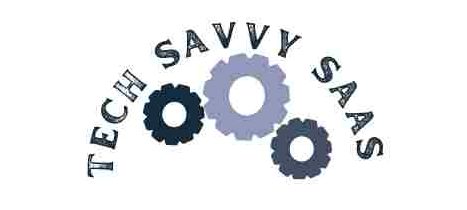Blockchain technology has emerged as a groundbreaking innovation, revolutionizing the way we handle transactions, data, and trust in the digital era. Blockchain technology fundamentally involves a decentralized and distributed ledger system, ensuring transparency, security, and immutability in recording transactions.
Simultaneously, the world is increasingly recognizing the paramount importance of environmental sustainability. With growing concerns about climate change, resource depletion, and the impact of human activities on the planet, there is an urgent need to adopt practices that minimize harm to the environment.
The integration of blockchain technology with the principles of environmental sustainability represents a significant step towards addressing these concerns. As industries evolve, there is a palpable realization of the necessity to incorporate more sustainable practices. This introduction sets the stage for exploring how the marriage of blockchain technology and environmental sustainability can lead to positive changes across various sectors.

Blockchain Technology and Sustainability
Blockchain technology, at its core, is a revolutionary system for recording and verifying transactions in a decentralized and distributed manner. Unlike traditional centralized systems, blockchain technology operates on a network of computers, forming a chain of blocks that contain transactional data. This system ensures a high level of security, transparency, and immutability.
The role of blockchain in supply chain management
In the realm of supply chain management, blockchain is a game-changer. It brings a new level of transparency that was previously challenging to achieve. The technology allows for an unalterable and transparent record of every transaction and movement within the supply chain. This feature is particularly crucial for verifying and ensuring sustainable practices throughout the supply chain.
Exploration of Transparency Enhancement
Blockchain enhances transparency by providing a tamper-resistant record of transactions. Every participant in the supply chain has access to the same information, reducing the risk of fraud or inaccuracies. This transparency is invaluable for tracking the flow of goods and ensuring that sustainable practices are adhered to at every step.
Tracking and Verifying Sustainable Practices
One of the pivotal roles of blockchain in supply chain management is its ability to track and verify sustainable practices. Whether it’s monitoring the sourcing of raw materials, ensuring fair labor practices, or validating eco-friendly production methods, blockchain can provide a comprehensive and trustworthy record.
Case Studies Illustrating Success
Real-world examples further underscore the transformative impact of blockchain on supply chain sustainability. Case studies showcase how companies have successfully implemented blockchain solutions to enhance transparency and traceability, ultimately improving their overall supply chain practices.
Blockchain’s Impact on Energy Consumption
In an era where environmental sustainability is paramount, the impact of blockchain technology on energy consumption becomes a crucial focal point. This section delves into the analysis of the environmental consequences of traditional energy consumption in various industries and explores how blockchain-based solutions can contribute to more sustainable energy practices.
Analysis of the Environmental Impact
Traditional energy consumption, particularly in industries heavily reliant on non-renewable resources, poses significant environmental challenges. The extraction, processing, and utilization of fossil fuels contribute to air and water pollution, habitat destruction, and, most notably, the emission of greenhouse gases. This analysis underscores the urgent need for alternative, eco-friendly solutions.
Introduction of Blockchain-Based Solutions
Blockchain technology offers innovative solutions to address the environmental impact of traditional energy consumption. By leveraging decentralized and distributed ledger systems, blockchain can facilitate the transition towards more sustainable energy practices. The inherent features of transparency, security, and immutability play a crucial role in reshaping the energy landscape.
Discussion on Optimizing Energy Consumption
A pivotal aspect of blockchain’s impact on energy consumption lies in its ability to optimize the use of energy resources. Through smart contracts and decentralized systems, blockchain can streamline energy distribution, ensuring more efficient utilization. This discussion explores how blockchain can contribute to reducing waste and promoting energy conservation in diverse industries.
Carbon Footprint and Blockchain
The examination of a company’s or industry’s carbon footprint is a fundamental step towards environmental accountability. This section investigates the carbon footprint in industries and businesses, emphasizing how blockchain technology can be a powerful tool for tracking and reducing carbon emissions.
Examination of Carbon Footprint
Understanding the extent of carbon emissions attributable to industrial and business activities is critical. This examination involves a comprehensive analysis of the entire life cycle of products and services, from raw material extraction to end-of-life disposal. Quantifying and assessing the carbon footprint sets the stage for informed decision-making towards more sustainable practices.
Utilizing blockchain to track and reduce carbon emissions
Blockchain presents an effective means to track and mitigate carbon emissions throughout the supply chain. By creating an unalterable record of carbon-related data, companies can accurately trace their emissions and identify areas for improvement. This discussion highlights the potential of blockchain to foster transparency and accountability in carbon management.
Examples of blockchain applications
Real-world examples showcase the practical applications of blockchain in addressing carbon footprint concerns. From enabling carbon trading platforms to verifying emission reduction initiatives, these examples illustrate how blockchain technology is actively contributing to the global effort to combat climate change.
Sustainable Practices in the Food Industry
The food industry is a complex ecosystem with intricate supply chains, making transparency and sustainability paramount. In this section, we explore how blockchain’s role in ensuring the transparency and sustainability of food supply chains is reshaping the way we produce, distribute, and consume food.
Exploration of Blockchain’s Role
Blockchain technology introduces a new era of transparency in the food industry. By creating an unalterable and accessible ledger, it becomes possible to trace the journey of food products from farm to table. This exploration delves into how blockchain ensures the authenticity of food items, verifies adherence to sustainable farming practices, and enhances overall supply chain transparency.
Case Studies in the Beverage Industry
Real-world case studies in the beverage industry serve as compelling examples of how blockchain has been successfully implemented to foster sustainable practices. These cases highlight how companies are utilizing blockchain to trace the origin of ingredients, confirm fair labor practices, and provide consumers with accurate information about the environmental impact of their beverage choices.
- Blockchain in Coffee Production: Examining how blockchain is utilized to trace the journey of coffee beans, ensuring fair trade practices, and promoting sustainable farming methods.
- Blockchain in Sustainable Brewing: Showcasing examples where breweries leverage blockchain to verify the sourcing of ingredients, reduce carbon footprints, and enhance overall sustainability.
- Transparency in Supply Chains: Case studies demonstrating how blockchain enhances transparency in beverage supply chains, instilling consumer confidence in the sustainability of their favorite drinks.
Blockchain in the Development of Sustainable Business Practices
The integration of blockchain technology into business operations is not just a technological upgrade; it is a paradigm shift toward ethical and sustainable practices. This section analyzes how blockchain encourages ethical business practices, supports sustainable development goals, and showcases real-world examples of companies leading the way.
Blockchain technology inherently promotes ethical business practices by design. The decentralized and transparent nature of blockchain ensures that transactions are tamper-resistant and verifiable by all parties involved. This analysis explores how blockchain fosters trust, accountability, and integrity in business dealings.
Sustainable development is a global imperative, and blockchain plays a pivotal role in supporting these goals. The discussion here delves into how blockchain aligns with and contributes to various sustainable development goals (SDGs). From poverty alleviation to environmental conservation, blockchain’s decentralized and transparent features make it a catalyst for positive social and environmental change.
Examples of Sustainable Business Practices
Real-world examples highlight the practical applications of blockchain in fostering sustainable business practices. Companies across industries are integrating blockchain to enhance transparency, traceability, and accountability. From ensuring fair labor practices to reducing carbon footprints, these examples illustrate the transformative impact of blockchain on ethical and sustainable business operations.
- Supply Chain Traceability: Examining how blockchain is used to trace the origin of products, ensuring fair labor practices and environmentally responsible sourcing.
- Carbon Emission Reduction: Showcasing companies that leverage blockchain to track and reduce carbon emissions, contributing to broader environmental sustainability goals.
- Fair Trade and Ethical Sourcing: Examples where blockchain ensures fair wages, ethical sourcing of materials, and adherence to social responsibility standards.
Ethical Considerations in Blockchain Technology
While blockchain offers significant advantages, ethical considerations must be thoroughly examined. This section explores the ethical concerns related to blockchain and sustainability, emphasizes the importance of ethical considerations in blockchain development and usage, and introduces ethical frameworks for guiding the responsible application of blockchain technologies.
As blockchain technology evolves, ethical concerns emerge. This exploration delves into issues such as data privacy, security vulnerabilities, and potential misuse of blockchain in ways that may conflict with ethical principles. By addressing these concerns head-on, the aim is to foster a responsible and ethical approach to blockchain development.
Understanding the importance of ethical considerations in the development and usage of blockchain is paramount. This discussion highlights the potential risks and consequences of neglecting ethical considerations, emphasizing the need for a conscientious and ethical approach to ensure the positive impact of blockchain on society.
To guide the ethical application of blockchain technologies, the introduction of ethical frameworks becomes essential. These frameworks provide a set of principles and guidelines to navigate the complex ethical landscape associated with blockchain. This introduction aims to raise awareness and encourage the adoption of ethical considerations in the ongoing development and implementation of blockchain solutions.
Key Takeaways
After exploring the multifaceted relationship between blockchain technology and environmental sustainability, it’s crucial to distill the key insights that underscore the transformative potential of blockchain in fostering positive change. The following takeaways encapsulate the essence of our discussion:
Blockchain’s Positive Impact on Environmental Sustainability
- Transparency and Accountability: Blockchain’s inherent characteristics, including transparency, security, and immutability, play a pivotal role in promoting transparency and accountability across various industries.
- Supply Chain Revolution: The integration of blockchain in supply chain management brings about a revolutionary change, ensuring the traceability and verification of sustainable practices throughout the supply chain.
- Optimizing Energy Consumption: Blockchain contributes to optimizing energy consumption through its decentralized systems and smart contracts, promoting more efficient energy distribution and reducing waste.
- Addressing Carbon Footprint: By enabling accurate tracking and reduction of carbon emissions, blockchain applications actively contribute to global efforts to combat climate change.
- Sustainable Business Practices: Blockchain encourages ethical and sustainable business practices, fostering fair trade, ethical sourcing, and adherence to social responsibility standards.
- Supporting Sustainable Development Goals: The alignment of blockchain with sustainable development goals (SDGs) signifies its broader role in addressing global challenges, from poverty alleviation to environmental conservation.
FAQs
How does blockchain enhance transparency in supply chains?
Blockchain enhances transparency in supply chains by creating a decentralized and tamper-resistant ledger. Every transaction and movement within the supply chain is recorded on the blockchain, providing all stakeholders with real-time access to the same information. This transparency ensures traceability, accountability, and a reduced risk of fraud, ultimately fostering a more transparent supply chain.
What are some examples of blockchain applications for reducing carbon emissions?
Examples of blockchain applications in reducing carbon emissions include the creation of carbon trading platforms, where companies can buy and sell carbon credits. Additionally, blockchain is utilized to track and verify the effectiveness of emission reduction initiatives, ensuring that businesses meet their sustainability goals. These applications contribute to global efforts to mitigate climate change.
How can blockchain support sustainable development goals in business?
Blockchain supports sustainable development goals in business by aligning with key principles such as transparency, accountability, and ethical practices. Through enhanced supply chain traceability, fair trade, and ethical sourcing, blockchain contributes to poverty alleviation, environmental conservation, and other sustainable development goals. It serves as a tool for businesses to make socially responsible and environmentally conscious decisions.
What ethical considerations should be taken into account when using blockchain for sustainability?
When using blockchain for sustainability, ethical considerations include ensuring data privacy, avoiding the misuse of blockchain for illegal or unethical activities, and addressing the potential environmental impact of blockchain mining. Ethical frameworks should be established to guide the responsible development and deployment of blockchain technologies, balancing innovation with social and environmental responsibility.
Can blockchain technology be applied to promote sustainable practices in any industry?
Yes, blockchain technology can be applied to promote sustainable practices in virtually any industry. From supply chain management in the food and beverage industry to tracking ethically sourced materials in fashion, blockchain’s transparency and traceability features make it versatile for fostering sustainable practices. Its applications extend across various sectors, providing innovative solutions for sustainability challenges.
Conclusion
In conclusion, the role of blockchain in enhancing environmental sustainability cannot be overstated. The technology’s positive impact on transparency, traceability, and ethical business practices positions it as a transformative force in creating a more sustainable future. As we recap the key insights, there is a clear call to action for businesses and industries.
Throughout this exploration, we’ve seen how blockchain technology revolutionizes supply chains, optimizes energy consumption, reduces carbon footprints, and fosters ethical and sustainable business practices. Its alignment with sustainable development goals showcases its potential for positive global impact.
More Post
- Cybersecurity for Online Learning Platforms: Ensuring Student Privacy
- How to Adaptive Learning Platforms: Tailoring Education to Individual Progress
- Social Learning Platforms: Creating Online Learning Communities
- How do implement 1:1 device programs in schools?
- Can We Unravel the Secrets of the Dark Web? Understanding Cybercrime Hideouts and Their Impact






